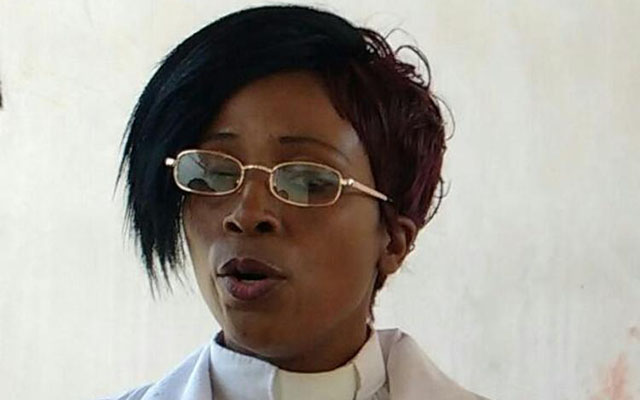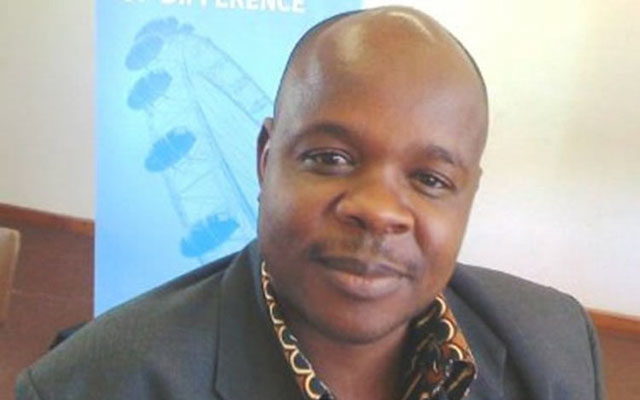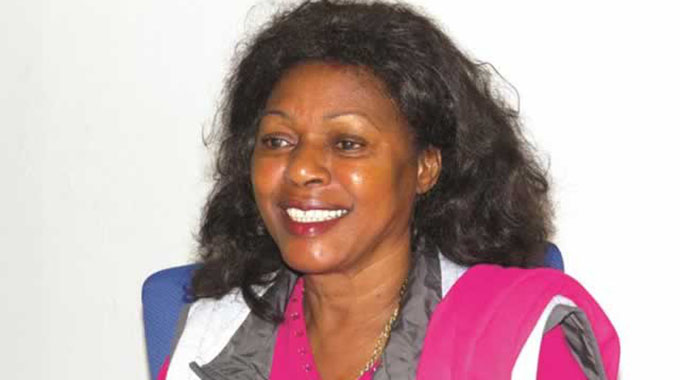Rev McLaren speaks truth to power

Ruth Butaumocho Gender Editor
Women are often regarded as “the backbone of” the Christian congregation not only in Zimbabwe, but across the globe.
Yet pulpits for conventional or traditional churches in Zimbabwe remain male-dominated spaces.
Over 2000 years since the death of Jesus, eyebrows are raised, churches split, pews empty and recommendation letters get lost along the way when a woman mentions that God has called her to preach.
While some denominations reluctantly accord her respect equal to the male counterparts, the discussion generally whittles down to one question: Can she preach?
That is the space that Reverend Florence Hazvineyi Mclaren and like-minded women find themselves in.
Rev Mclaren is an ordained pastor with the African Methodist Episcopal Church in charge of the SIMS Chapel in Mbare. She is one of the only two female ordained ministers for the church in Zimbabwe. The African Methodist Episcopal Church has other branches in the country’s major cities.
In her role as an evangelist and pastor, she is daringly advancing the cause of women in the church, who despite their numerical significance, continue to be side-lined in leadership and affairs of the church. Reverend McLaren says the involvement of women in church leadership especially in traditional churches, where they are taking the to the pulpit is putting church dictum’s to test.
“We are operating in an environment where social biases and gender stereotypes still dominate the church, but ministering is a calling that I am determined to fulfil it to the end,” declared Rev McLaren in an interview recently.
Born Florence Gambe, Rev Mclaren said the majority of women were passionate about ministering in line with God’s calling, but more often than not, some were being stifled by gender stereotyping that was rife in denominations.
“Acceptance of female preachers remains a challenge in most denominations, where they are often side-lined and told that they should not preach,” noted Rev McLaren.
Women find themselves on the periphery of ministering because most churches overuse exclusively masculine language for God and humanity, she affirmed.
“What even worsens the situation, is that fellow women can’t even accept women preachers, and would be happier being led by men,” she said.
That, however, has not wilted Rev McLaren’s determination to serve in the church, after God spoke to her during her most trying times.
“I had lost my husband, and I was failing to come to terms with his death,” she recalled.
She could not fathom the death of her husband seven months after formally tying their nuptials although they had been together for years.
“I was in anguish, grieving and asking God why my husband had to die, leaving me with the responsibility of caring for the family and his congregation.”
Married to Reverend Mpala, who was a pastor, she also had to assist in counselling and his death meant she had to fill in the void, a role she had not fully prepared for. It was during her moment of despair – juggling her newly acquired role and grieving – when she came face-to-face with her Damascan moment in 2009.
“I had spent hours crying, failing to understand why my husband died at a moment when I needed him most, when I heard a voice ordering me to affirm my faith in the Lord and serve in his house.”
It was easy for Rev McLaren to scale up God’s work, something she was already into following the death of her husband, where she had to continue counselling couples who carried on coming to the house.
Her commitment to the work of God changed after the death of her husband, a change that was even noticed by her fellow congregates.
“From the moment God revealed himself to me, I knew that I had to work for the ministry and fulfil his wishes. I had to put my personal needs aside and commit my life to ministering in the church, something that I had never envisaged myself doing,” she recalled.
Her first call was to enrol in bible school to strengthen her understanding of the Word and also work on her faith.
Having been raised in a religious family and within the same church African Methodist Episcopal Church, where she served in the praise and worship choir during her youth, Rev McLaren did not struggle to find her footing.
The three years that she spent at Soul Travailing Bible Institute from 2010-13 were quite fruitful and spiritually fulfilling. She did not only attain a diploma in Theological Studies, but Rev McLaren matured spiritually.
By the time she did a degree in Theological Studies and graduated in 2015, Rev McLaren was more than ready to execute the task at hand.
However, she was shocked when she hit the ground to discover that being a female preacher was no stroll in the park.
Even the sisters, she had hoped would give her moral support, could not fathom the idea of being take through the Word by a woman. What even worsened her situation was that her profession as a trained beautician — was deemed to be conflict with her newly attained status.
“I trained as a make-up artist and worked in the film industry regional and in several local productions that included working on the set for local dramas like Gringo, Mombe Dzemashanga and Murambiwas.
“I believe the congregation could not imagine being preached to by someone who had qualifications in what they termed “earthly things,”
However, despite the insurmountable challenges that she faced in her first year into the ministry, Rev McLaren was determined to soldier on.
“God does not look at gender when making a call to who should serve in the ministry, and gender should not be used as basis for judging one’s capability to serve in the house of the Lord,” affirmed the Rev.
Reverend who got married to Robert McLaren in 2013 feels churches should accord women the same status as men in serving the Lord.









Comments